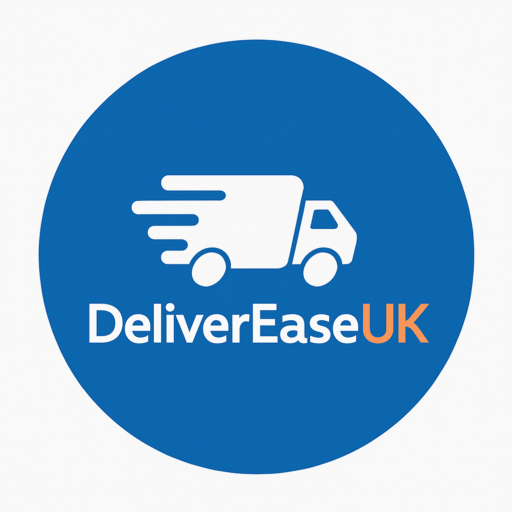What You Will Learn On This Page
This step-by-step guide is your go-to resource for setting up as a self-employed sole trader in the UK. Whether you’re starting a delivery driver career with Uber Eats or launching your own small business.
You’ll learn how to:
✅ Register as a sole trader with HMRC
✅ Set up a business bank account
✅ Get the right insurance for delivery jobs
✅ Track your income and expenses properly
✅ Understand UK self-employment taxes
✅ Sign up and get started as an Uber Eats delivery driver
✅ Access helpful tools, apps, and support
By the end of this guide, you’ll be fully set up as a self-employed delivery driver or freelancer in the UK, ready to work for yourself and earn on your own terms.

Guide to Becoming a Sole Trader in the UK
What Is a Sole Trader?
A sole trader is the simplest form of self-employment in the UK. You’re the only owner of your business and responsible for everything, including profits and losses. It’s ideal for delivery drivers, freelancers, tradespeople, and small online sellers.
What You Need Before You Start
Before registering, you should:
✅ Be 16 or older
✅ Be a UK resident with the right to work
✅ Have a National Insurance (NI) number
✅ Decide on a business name (can be your own name)
1. Register as Self-Employed with HMRC
Why: This registers you to pay tax and National Insurance.
How:
Scroll down and click “Register for Self Assessment”
Follow the instructions to create a Government Gateway account
You’ll receive a Unique Taxpayer Reference (UTR) in the post within 10 days
You’ll use your UTR to file tax returns
Note: Do this as soon as you start trading, or within the first 3 months.
2: Set Up a Business Bank Account (Optional but Recommended)
Why: Keeps business income separate from personal money. Easier for accounting and claiming expenses.
How:
Choose a bank that supports sole traders:
Monzo Business – £50 welcome bonus with this link.
Starling Bank
Tide – Offers referral bonuses
3: Get Business Insurance
Why: Covers accidents, damage, or loss. Some platforms (like Amazon Flex or Uber Eats) require it.
Common Types:
Public liability insurance
Goods in transit (delivery)
Business vehicle insurance (hire & reward)
How:
- For delivery driving: Acorn Insurance, Zego
Try comparison sites like GoCompare or MoneySuperMarket
4. Sign Up for Uber Eats as a Delivery Driver (UK)
Why: Uber Eats is one of the most popular self-employed delivery jobs in the UK. It’s a flexible and easy way to earn money on your own schedule.
How to Sign Up:
Go to the Uber Eats Driver Sign-Up Page
Click “Sign up to deliver” and create your account
Upload your documents:
Driving licence (UK or EU)
Proof of right to work in the UK (e.g. passport, residence permit)
Vehicle insurance (Hire & Reward/Delivery insurance)
Vehicle logbook (V5C)
MOT certificate (if using a car)
Wait for your background check to complete
Download the Uber Driver app on your phone
Once approved, log in and start delivering
Tip: You’ll earn more by working during lunch and dinner hours. Carry a power bank and a food delivery bag to keep orders secure.
5. Track Your Income and Expenses
Why: You’ll need accurate records for your yearly Self Assessment tax return.
How:
Use simple accounting software:
[Excel/Google Sheets] – basic method
Track:
Income from clients/platforms
Business expenses (fuel, phone, internet, insurance, etc.)
Mileage (if driving for business)
6. Know Your Taxes
You must file a tax return each year.
Here’s what to expect:
| Tax Type | When | Amount |
|---|---|---|
| Income Tax | Yearly | 20%+ after £12,570 |
| National Insurance (Class 2 & 4) | Yearly | Class 2 = £3.70/week; Class 4 = 9% over £12,570 |
| Payments on Account | Twice yearly | Advance tax for next year (after year 1) |
How to File:
File online by 31st January each year
Pay any tax due by the same date
7. Create a Simple Website or Social Media Page (Optional but Helpful)
Why: Builds trust, helps attract clients, and showcases your work.
How:
Use WordPress.com or Wix
Or start a free Google Business Profile
Social media: Facebook, Instagram, TikTok, Telegram
Include:
What you do
Contact details
Links to your reviews or work
Referral links if applicable
Helpful Links Recap
| Task | Link |
|---|---|
| Register as a sole trader | gov.uk/set-up-sole-trader |
| Business bank accounts | Monzo, Starling, Tide |
| Insurance comparison | Zego, Acorn |
| Accounting software | QuickBooks, FreeAgent |
| Self Assessment filing | gov.uk/self-assessment-tax-returns |
| Universal Credit | gov.uk/universal-credit |
Summary
Where You Should Be After Following This Guide
By now, you should be fully set up as a self-employed sole trader in the UK and ready to start working on your own terms. You will have:
Registered with HMRC as self-employed
Set up a business bank account to manage your income
Chosen the right insurance for delivery jobs or freelance work
Learned how to track your income and expenses for tax season
Understood how UK self-employment taxes work
Signed up and been approved as an Uber Eats delivery driver
Gained access to the tools and platforms needed to grow your business
Whether you’re looking to earn full-time or make extra money on the side, you’re now equipped with the knowledge, tools, and structure to succeed as your own boss in the UK.
